Ultimate Guide to Local SEO for Beginners
Optimizing your online footprint is more important than ever before today. People no longer rely on yellow pages. Local SEO is a targeted approach to search engine optimization, focused on promoting your business to local customers when they search for products or services like yours.
By leveraging Local SEO techniques, you can increase your visibility in local search results and stay ahead of the competition. Let’s look at the strategy in detail today based on our over a decade of experience as a successful local digital marketing agency.
What is Local SEO?
Local SEO is a subset of organic search, and refers to the practice of optimizing a business website and its online presence to get more local customers.
Here’s the difference between local pack and localized organic results — two terms you’ll often heard people say when they talk about local SEO.
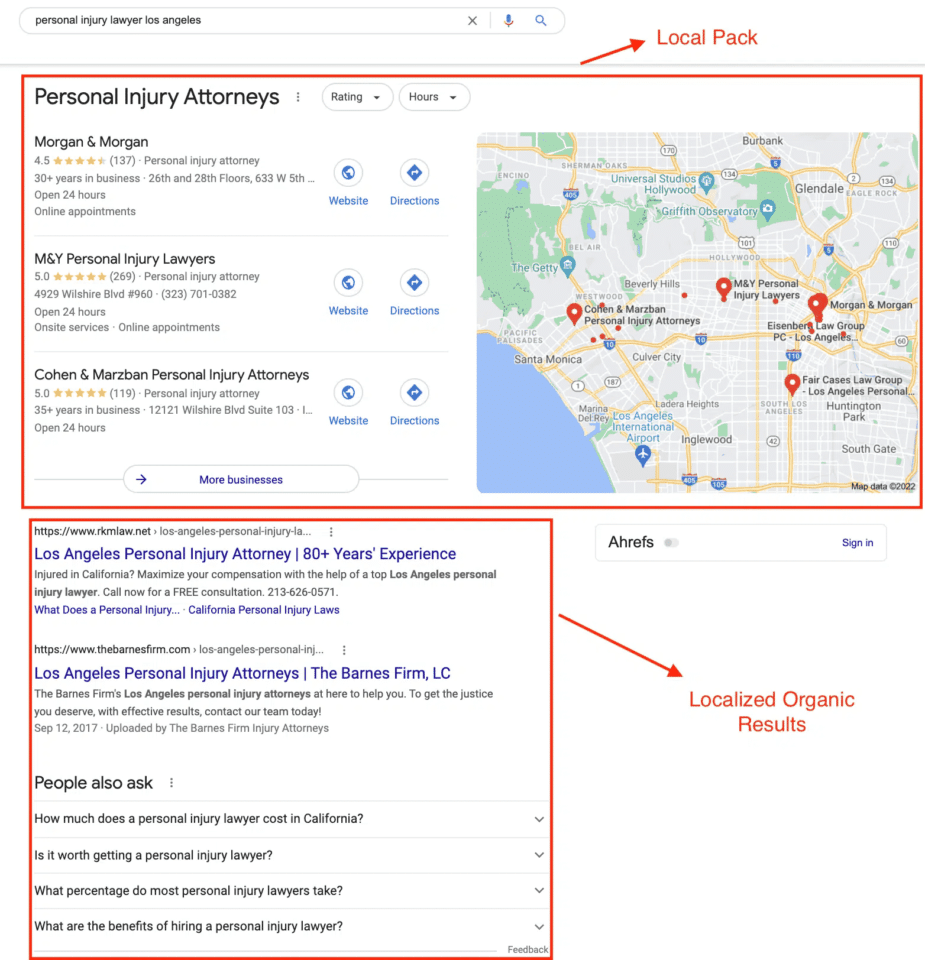
Why is Local SEO Important?
With the rise of mobile devices, local search has become more critical than ever. People use their smartphones and tablets to find products and services near them, and if your business doesn’t show up in the search results, you could be missing out on a lot of potential customers.
Local SEO helps you target your marketing efforts to the geographically near searchers who are most likely to become customers. By optimizing your website for local search terms, creating local business listings, and managing your online reputation, you can scale your revenue.
Here are the top local SEO ranking factors as per a survey of experts by BrightLocal:

How Local SEO Differs from Traditional SEO
While traditional SEO best practices focus on improving your website’s visibility in search engines for specific keywords, local SEO is all about attracting customers in your local area.
Small businesses can leverage local SEO to optimize their websites and online presence for location-based searches.
This means including local keywords in your content, creating local business listings on business directories like Google Business Profile (earlier called Google My Business), Yelp, and Bing Places, and managing your online reputation on local sites like TripAdvisor and Yelp.
The primary goal of local SEO is to make it easier for customers to find your business when they search for products or services in your area. Unlike traditional SEO, which is often focused on national or global search terms, local SEO is all about targeting local customers and making sure they can find your business when they need it.
Businesses such as plumbers, law firms, home service business owners and the like need to invest in both organic and local SEO. They need to interject the mobile searches and also appear on other digital touch points of their prospects.
Key Elements of Local SEO
Local SEO is a powerful tool for businesses looking to increase their online visibility and attract more customers from their local area. By optimizing your website for local search results, you can improve your chances of ranking higher in Google’s search results and attracting more traffic to your website.
In this section, we’ll look at three key elements of local SEO based on Google’s and search engine’s algorithms that you can use to improve your online presence and attract more customers.
Google Business Profile Optimization
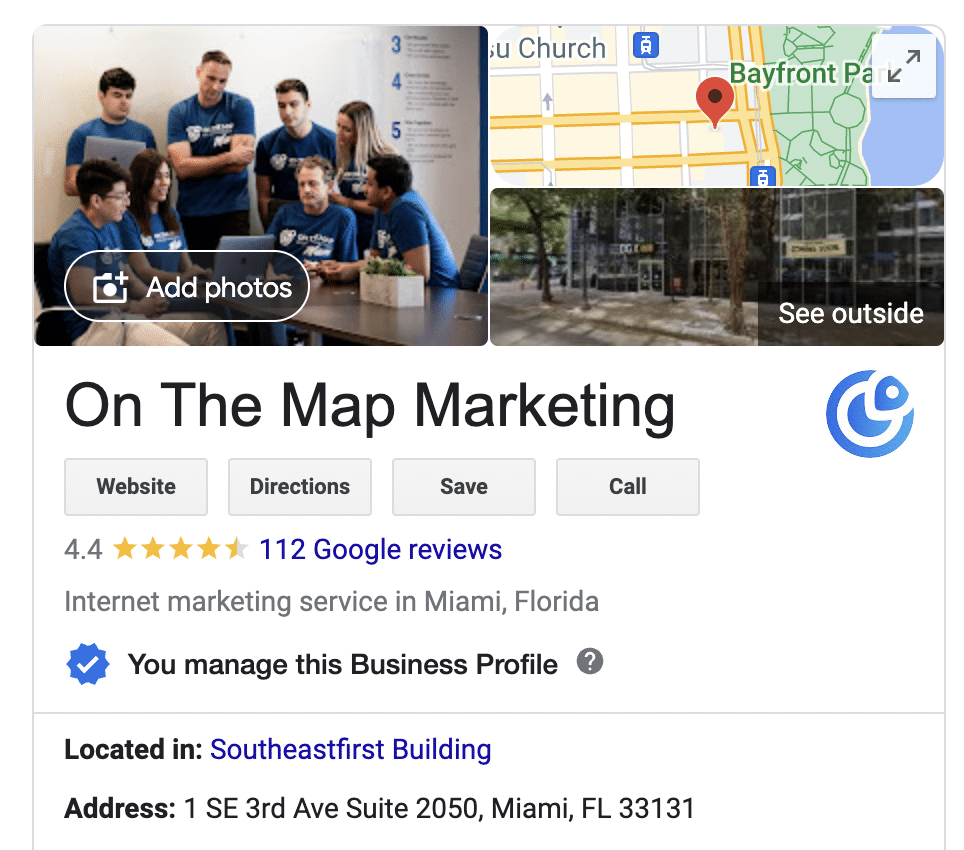
Google My Business (GMB) is a free tool that allows businesses to manage their online presence across Google, including Google Search and Google Maps. By optimizing your GMB listing, you can improve your chances of appearing in local search results, including the map pack.
To optimize your GMB listing, make sure to:
- Create and verify your listing
- Add accurate and up-to-date information about your business, including your address, phone number, and website
- Add photos and videos to showcase your business
- Encourage customers to leave reviews
By optimizing your GMB listing, you can improve your chances of appearing in local search results and attracting more customers.
If your business has a physical location in multiple locations, you’ll need to create local listings for each one.
Local SEO Keyword Research
Local keyword research is the process of identifying keywords and phrases that are relevant to your business services. Typically you’ll consider Google’s local search when talking about local keywords.
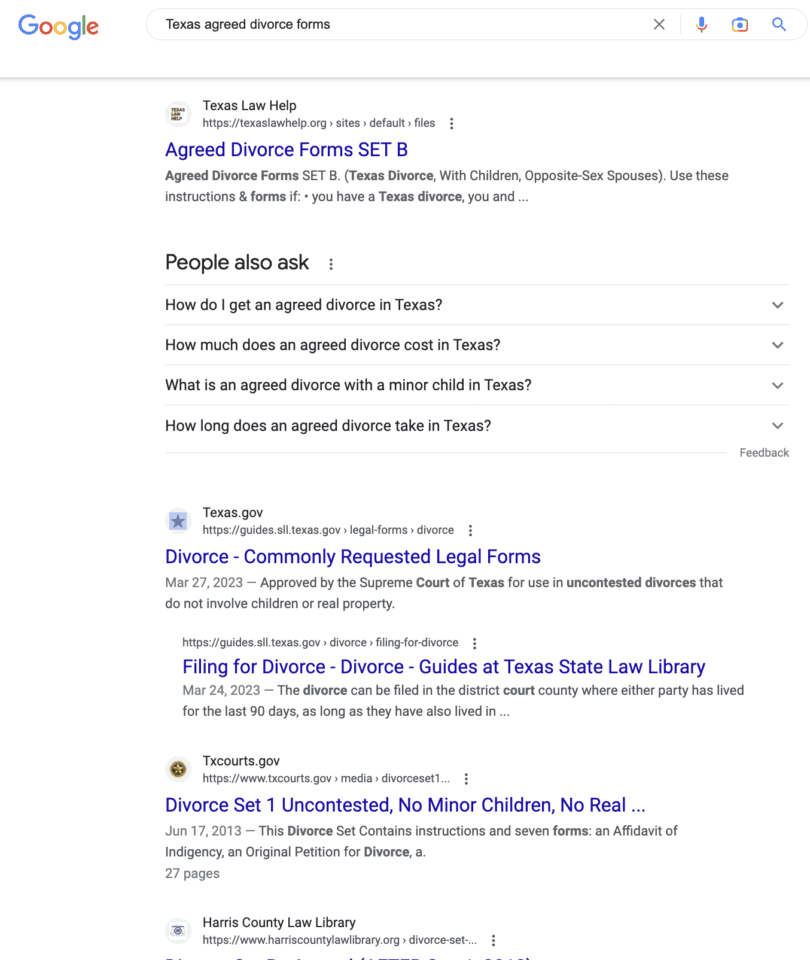
By optimizing your website for these keywords, you can improve your chances of ranking higher in local search results and attracting more traffic to your website.
When conducting local keyword research, make sure to:
- Identify keywords and phrases that are relevant to your business
- Use tools like Ahrefs and Moz Keyword Explorer to identify keywords with decent search volume
- Understand the keywords with a local intent and high chances of conversions
By conducting local keyword research and optimizing your website for your target keywords, you can improve your chances of ranking higher in local search results and attracting more traffic to your website.
On-page SEO
On-page optimization for local SEO involves optimizing your website’s content, landing pages, and meta tags. Here’s how you do it:
- Include your target keywords in your website’s meta tags, including your title tag, meta description, and header tags
- Include location-specific keywords in your content
- Optimize your website’s images by including alt tags that include your target keywords
- Include your NAP (name, address, and phone number) on every page of your website, and make sure it matches the information on your GMB listing
By optimizing your website’s content and meta tags for local SEO, you can improve your chances of ranking higher in local search results and attracting more traffic to your website.
Off-page Optimization for Local SEO
Off-page optimization is a vital element of local SEO, ensuring that your website ranks well in search engine results pages (SERPs) for relevant local searches. In addition to on-page optimization, off-page optimization includes tactics such as local link building, local citations and directories, and reviews and ratings.
Local Link Building
Off-page optimization comprises building high-quality local backlinks. Local links can be acquired through a variety of methods, including guest blogging, sponsorships, and partnerships.
When building local links, it’s important to ensure that the links are from reputable sources that are relevant to your business. The anchor text used for the links should also be relevant and include keywords that are important to your local SEO strategy.
One effective way to build local links is to create valuable content that is relevant to your local audience. This could include blog posts, infographics, or videos that provide useful information about your products or services.
This type of content is more likely to be shared and linked to by local websites, which can help to improve your local search rankings.
Local Citations and Directories
Local citations and directories are another important element of off-page optimization.
These are listings of your business information (such as name, address, and phone number) on other websites, such as local directories or review sites. They help search engines to verify the accuracy of your business information and can improve your local search rankings.
When creating local citations and directory listings, it’s important to ensure that the information is consistent across all sites. This includes ensuring that your business name, address, and phone number (NAP) are consistent and accurate. Inaccurate or inconsistent information can harm your local search rankings.
Reviews and Ratings

Reviews and ratings are an important factor in local search rankings. Positive reviews and ratings can improve your local search rankings, while negative reviews can harm them. Encouraging customers to leave reviews and ratings is a great way to improve your local search rankings.
When encouraging customers to leave reviews and ratings, it’s important to ensure that the process is simple and easy. This could include including links to review sites on your website or in your email signature, or providing incentives for customers who leave reviews.
- Overall, off-page optimization is a critical component of local SEO, helping to improve your search engine rankings for local searches.
- Local link building, local citations and directories, and reviews and ratings are all important tactics for off-page optimization.
- It’s important to ensure that all off-page optimization efforts are consistent with your overall local SEO strategy.
6 Quick Local SEO Tips for 2025
As a local business owner, it is essential to have a strong online presence to attract potential customers in your area. Local SEO is a powerful tool to help you achieve this goal. Here are five quick local SEO tips for 2025.
Add Location Pages to Your Local Business Website
One of the most effective ways to improve your local SEO is by adding location pages to your website. Location pages provide valuable information to your customers, such as your business address, phone number, hours of operation, and directions. They also help search engines connect your business with the local community. When creating location pages, be sure to use relevant keywords and include links to other related websites for contextual information.
Ensure Your NAP is Consistent Across The Web
NAP stands for Name, Address, and Phone number, and it is crucial to have consistent NAP information across all online platforms. Inconsistent NAP information confuses search engines and can harm your local SEO efforts. Make sure your NAP information is accurate and up-to-date on your website, Google My Business, social media profiles, and other online directories.
Go Local With Social Media
Social media is an effective tool for local businesses to connect with their target audience and build a loyal customer base. Make sure to create social media profiles for your business on popular platforms like Facebook, Twitter, Instagram, and LinkedIn. Update your profiles regularly with engaging content, and use local hashtags to reach a broader audience.
Ensure Your Website is Mobile Responsive
With the increasing use of mobile devices, it is essential to have a website that is mobile responsive. A mobile-responsive website adapts to different screen sizes, making it easy for customers to navigate and find the information they need.
It also helps improve your local SEO as search engines prioritize mobile-friendly websites in search results. Use the Google’s Mobile Friendly tool to find if your website is responsive.
Participate in Local Events and Build Goodwill
Participating in local events and supporting community initiatives can help build goodwill for your business. It also provides an opportunity to connect with potential customers and promote your products or services. Consider sponsoring a local event or organizing a charity drive to give back to the community. Building goodwill can help boost your local SEO by increasing your online reputation and visibility.
Use Local Schema
A kind of structured data markup code, a local schema can help search engines identify the category of your local business. To get started visit Schema.org, and choose a relevant local business niche. Then add relevant business info on your about page and follow the steps here.

5 Local SEO Tools You Need to Leverage
As a local business owner, it’s essential to optimize your website for local search. This is where local SEO tools come into play. These tools can help you improve your online presence, monitor your local rankings, and manage your local business listings. Here are five local SEO tools you need to leverage:
Trackright
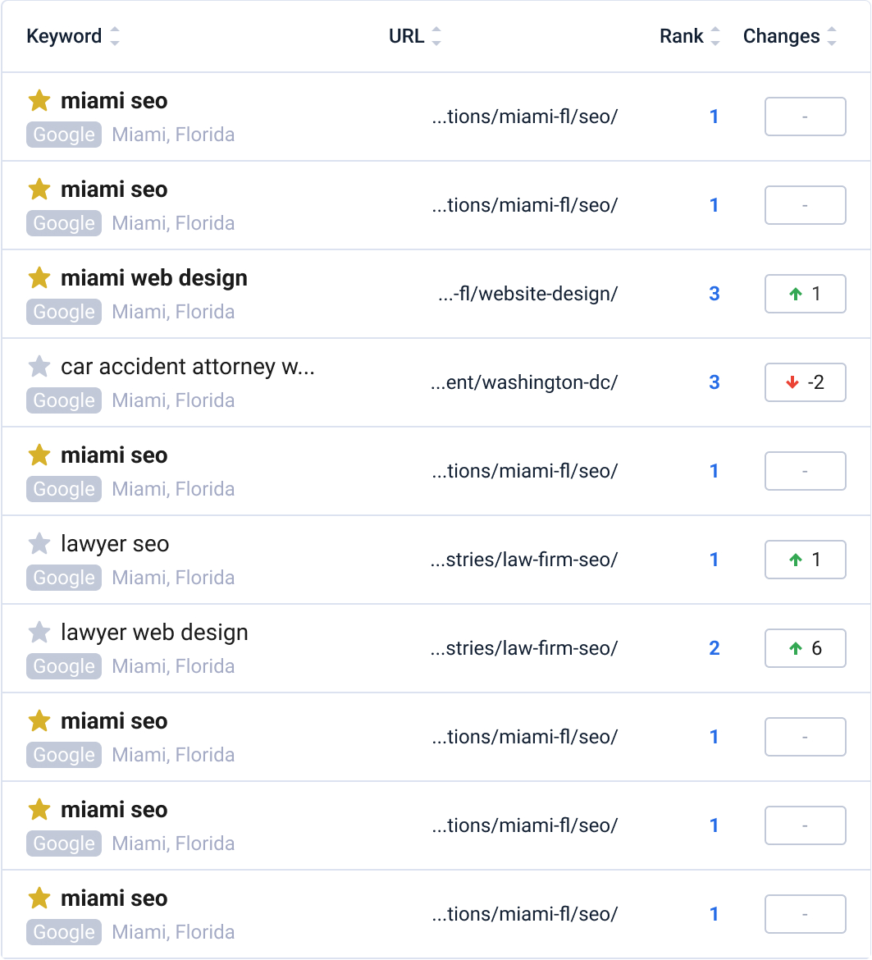
Trackright is a powerful local SEO tool that allows you to track your local search rankings and monitor your online reputation. With Trackright, you can track your local search rankings for specific keywords and locations, monitor your online reviews and mentions, and analyze your local search performance over time.
Whitespark Local Citation Finder

Whitespark Local Citation Finder is a tool that helps you find local citation opportunities for your business. A citation is a mention of your business’s name, address, and phone number (NAP) on other websites, such as directories, review sites, and social media platforms. The more citations your business has, the higher it will rank in local search results.
Moz Local

Moz Local is a local SEO tool that helps you manage your local business listings on major search engines, directories, and social media platforms. With Moz Local, you can ensure that your business information is accurate and consistent across all platforms, which can help improve your local search rankings.
BrightLocal
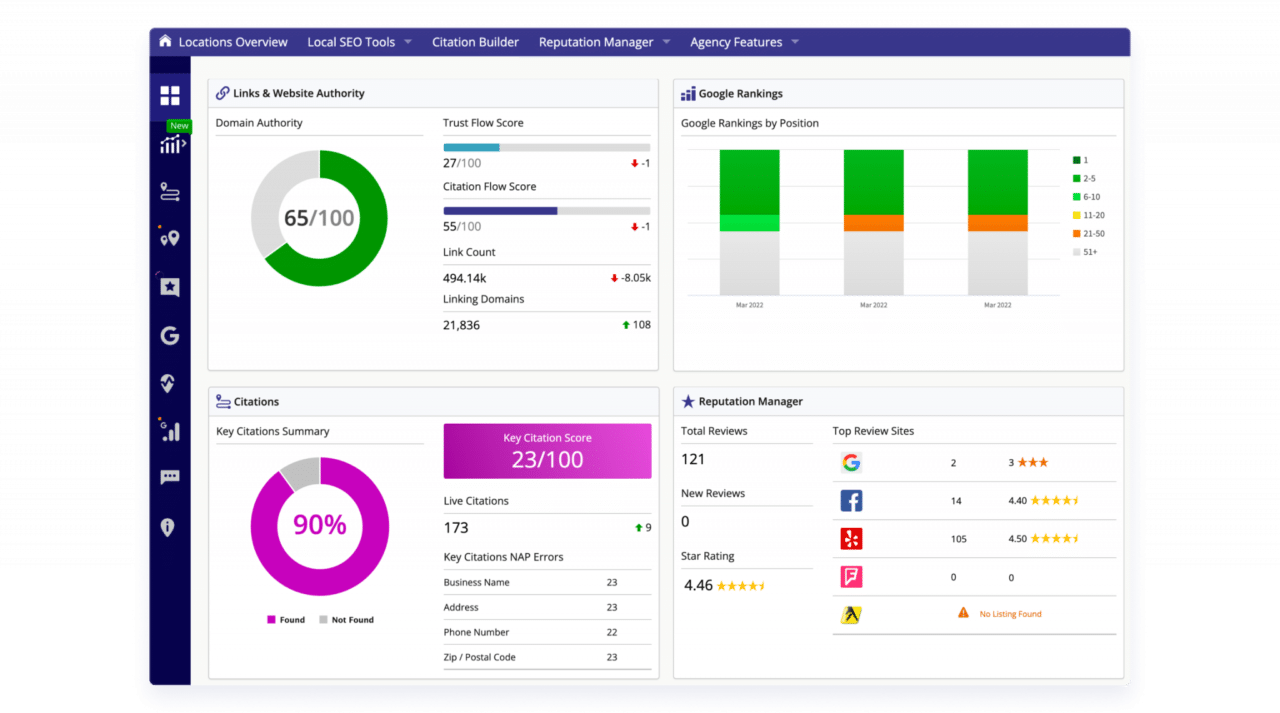
BrightLocal is an all-in-one local SEO tool that offers a range of features, including local search rank tracking, citation tracking, and local business listing management. With BrightLocal, you can track your local search rankings, monitor your online reviews, and manage your local business listings across multiple platforms.
Ahrefs

Ahrefs is a powerful SEO tool that can help you improve your local search rankings. With Ahrefs, you can analyze your competitors’ local search rankings, find local keyword opportunities, and track your local search rankings over time.
In conclusion, these five local SEO tools can help you optimize your website for local search, improve your online presence, and manage your local business listings. By leveraging these tools, you can stay ahead of your competitors and attract more local customers to your business.
Conclusion
In conclusion, local SEO is a powerful tool that can help your business dominate your service area. By optimizing your website and online presence — based on your local services — you can get in front of your prospective clients.
However, it’s important to keep in mind that local SEO is an ongoing process that requires consistent effort and attention. Businesses need to regularly update their website, create high-quality local content, and actively manage their online listings to maintain their local search rankings.
How would like On The Map Marketing to conduct a local SEO audit for your business? Contact us today with the details of your requirements.
Table of Contents
Related Articles
Dominate Your Market with Digital Marketing Services That Deliver
Talk to a certified professional today, and we will design a strategy specific to your case.







